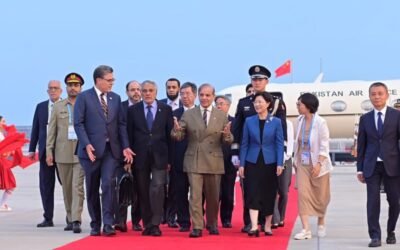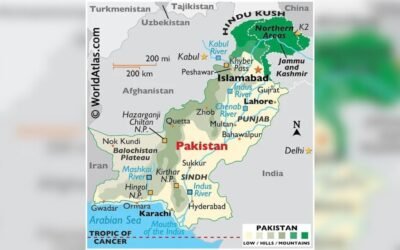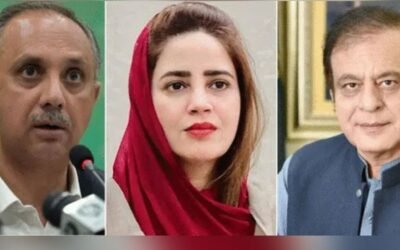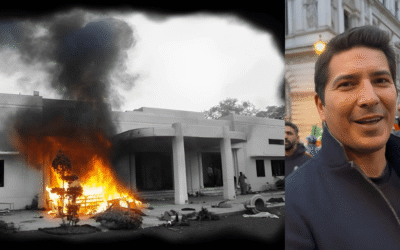Pakistan was built on the values of faith, unity, and discipline, and has faced many challenges over the years. Recently, more and more people are rejecting negative talk against the country and instead showing strong support for peace and stability.
This shift shows that Pakistanis want progress, a better economy, and a stronger, united nation. Surveys and expert opinions also show that people, guided by Islamic values and resilience, are choosing a peaceful and stable path for the country’s future.
The Quest for Stability: A Deep-Seated National Aspiration
The pursuit of stability is not merely a political slogan in Pakistan; it is a fundamental desire that resonates deeply with its citizens. Decades of political volatility, often exacerbated by divisive narratives, have highlighted the urgent need for a steady course. Public opinion polls from recent years underscore this sentiment.
A Gallup Pakistan survey (May 12–18, 2025), done after the ceasefire with India, showed that most people strongly support the Pakistani military. About 97% said the army did a good or very good job, and 93% said their opinion of the army improved after the conflict. This shows that people trust the military to protect the country and keep it strong.
Even in June 2023, when many were unhappy with the economy, 88% still gave high approval to the army. These results show that the military is seen as a key source of stability in Pakistan.
Experts also support this idea. Political experts say that while people are unhappy with some government actions or economic problems, they also understand that ongoing political problems make things worse. A study on ResearchGate about Pakistan indicates that political unrest negatively impacts the economy. Because of this, many people now believe that having a stable government is necessary for life to get better.
More Like This:
The Economic Imperative: Stability as a Pathway to Prosperity
Pakistan’s economy depends on having a stable government. When prices go up and the money loses value, it affects people’s daily lives. In late 2023, a Gallup survey showed that 70% of Pakistanis felt the economy was getting worse — the worst in almost 20 years. Because of this, many people don’t support ideas or actions that could hurt the economy even more.
Government and economic experts keep saying that foreign investment is very important for creating jobs and growing the economy. But investors only come when a country is politically stable and predictable. When people spread anti-state messages, it creates fear and stops important development work. That’s why many people now avoid such negative talk — they want to protect the economy and their future. This shows that people understand the need to stay united to solve problems and grow stronger. On December 5, 2024, Dawn reported that Pakistan is moving “from stability to growth,” with the economy doing better than during the 2022 and 2023 crisis.
Islamic Values: The Bedrock of Unity and Collective Welfare
Islam is an important part of life in Pakistan and helps people understand why staying united is important. Islam teaches unity, fairness, and the importance of helping others. The Quran says Muslims should stick together and not be divided (Surah Aal-e-Imran, Verse 103). The Prophet Muhammad (PBUH) also said that being part of a strong and united group is better than being divided. These teachings encourage people to work together for the good of the country.
Pakistan was made to follow Islamic values and bring people together. These ideas still guide the country today, showing it as peaceful, strong, and fair. People say no to anti-state talk because Islam teaches unity, respect, and helping the whole community. The government also tries to follow Islamic rules, like interest-free banking and honesty. This shows that Pakistan is built on the teachings of Islam.
Youth for a Stable Future: A New Generation’s Aspirations
Pakistan is a nation with a significant youth bulge, with over 60% of its population under 30. This demographic represents a powerful force for change, and their sentiment is increasingly geared towards constructive engagement and opportunities rather than disruptive activism. While the youth face challenges such as unemployment and limited opportunities, there is a growing recognition among them that instability only exacerbates these issues.
Young people in Pakistan want the country to grow and be safe. They want good schools, jobs, and new ideas. They don’t like talks that cause problems and slow progress. Social media helps them share good ideas to make the country better. Many groups teach young people skills and how to start businesses so they can help build a better Pakistan.
The Role of State Institutions and Media in Fostering Stability
Government agencies like the police and the cybercrime wing of the FIA work hard to stop messages that hurt national unity and cause trouble. After important events, the FIA looks into people who spread false or anti-state messages to protect the country and keep peace. They also create special teams to find and stop wrong information online. These efforts help stop division and encourage people to use the internet responsibly
Furthermore, a significant portion of the mainstream media plays a crucial role in promoting a pro-Pakistan narrative, highlighting the nation’s resilience, its achievements, and its commitment to peace. By providing platforms for expert analysis that emphasizes the benefits of stability and the dangers of internal discord, media outlets contribute to shaping public opinion in a constructive direction. This collective effort across various sectors reinforces the message that national interests are best served through unity and a stable political environment.
Conclusion: A Resilient Nation Choosing Progress
The rejection of anti-state rhetoric in Pakistan is a testament to the resilience and foresight of its people. Driven by a deep desire for stability, economic prosperity, and guided by their enduring Islamic values, Pakistanis are increasingly opting for a path of national unity and constructive engagement. This shift reflects a maturing political consciousness, where the long-term benefits of a peaceful and stable nation are prioritized over fleeting, divisive narratives.
As Pakistan continues its journey towards progress and development, this growing sentiment for stability will undoubtedly serve as a cornerstone for building a stronger, more prosperous nation. The collective will of its citizens, combined with the efforts of responsible institutions and media, will pave the way for a future where Pakistan stands as a beacon of peace, resilience, and ethical governance on the global stage.







